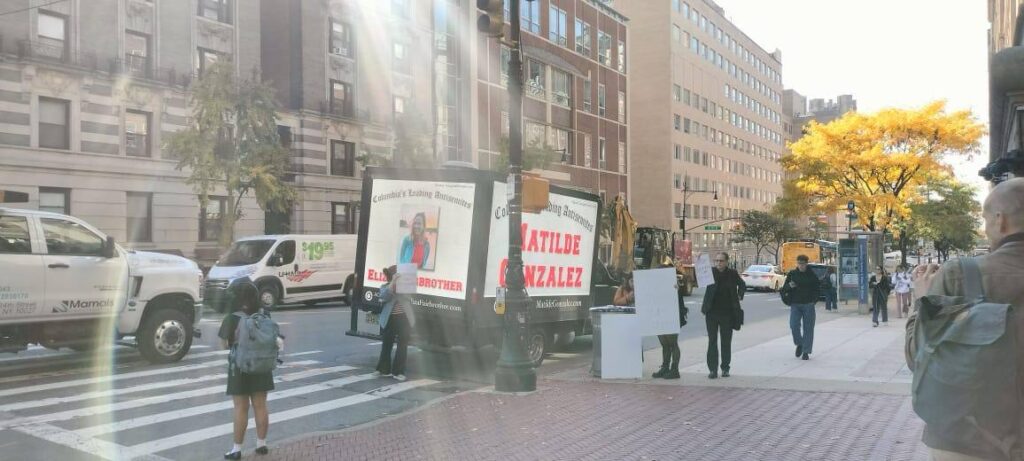The troubles on Columbia University’s campus began over six months ago, long before last week’s protests. Shortly after Hamas’ October 7th attack on Israel, a box truck covered in LED screens displaying the names and photos of dozens of Columbia students started circling a pro-Palestine protest near the university’s Morningside Heights campus. The truck, paid for by the conservative nonprofit Accuracy in Media, called the students “Columbia’s Leading Antisemites.”
The Verge covers AIM’s Columbia activism
July 16, 2024
Columbia University has a doxxing problem
“I literally did not leave my apartment the days my friends told me about it,” a computer science undergraduate, whose name was listed on the truck, told me outside the Columbia encampment on Tuesday afternoon. The student, who did not wish to be identified for fairly obvious reasons, said her name was listed on the truck because a club she was no longer a part of had signed onto an open letter urging Columbia to cut ties with Israel. It was a traumatizing experience for her. “I completely wiped as much as I could of my online presence and stayed in my apartment as much as I could,” the student said. “I felt like I couldn’t go to classes.”
Like most of the other people who filtered in and out of the encampment, the student stayed masked as we spoke. Students covered their faces with surgical masks, sunglasses, and kaffiyehs, both to prevent spreading covid-19 in close quarters and to shield themselves from the prying eyes of outsiders who they feared would target them over their involvement in the encampment.
At Columbia and elsewhere, pro-Palestine protesters have attempted to balance their public-facing activism with increasingly dire concerns over their privacy and safety. People who have attended marches or rallies, organized fundraisers for displaced Palestinians, or belonged to certain campus clubs have found themselves and even their families on the receiving end of relentless online harassment after their names were publicized by anonymous accounts that claim to combat antisemitism. In some cases, they have even lost their jobs.
For the students targeted by the “doxxing truck,” the intent was clear: they were being intimidated for supporting Palestinians and, in some cases, for their race or religion. (One student whose name and photo were displayed on the truck sued Accuracy in Media in November for “defaming and stigmatizing” him. The student was the former president of an Arab cultural group on campus and says he did not sign onto the letter.) The harassment of student activists at Columbia and elsewhere has only intensified since then, often spilling over into the physical world.
